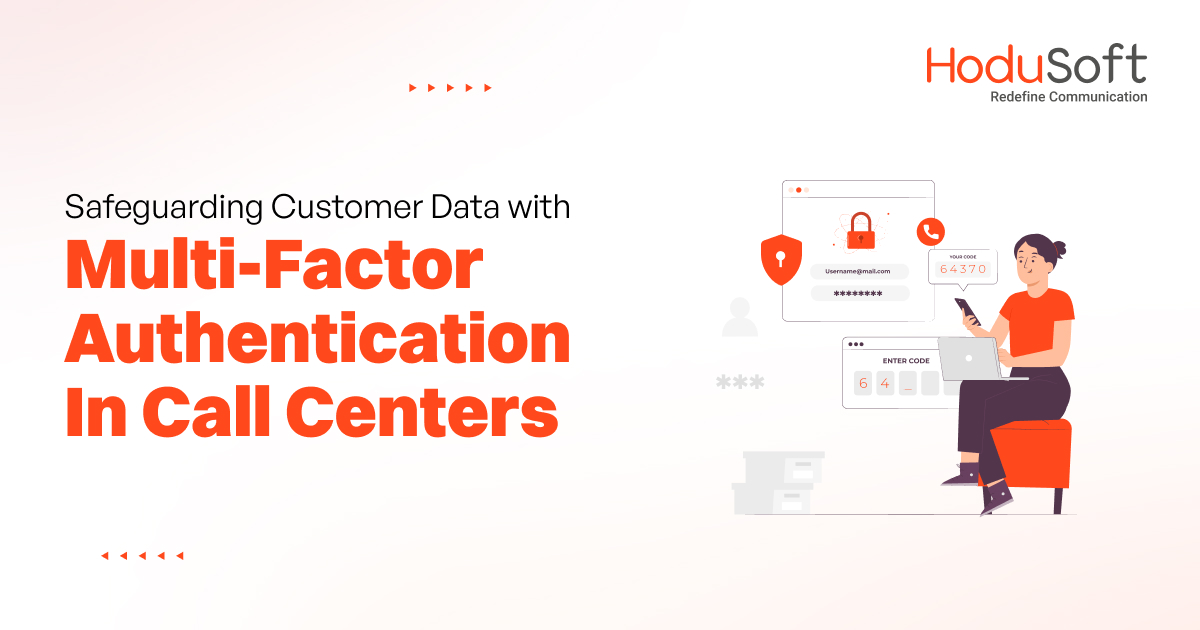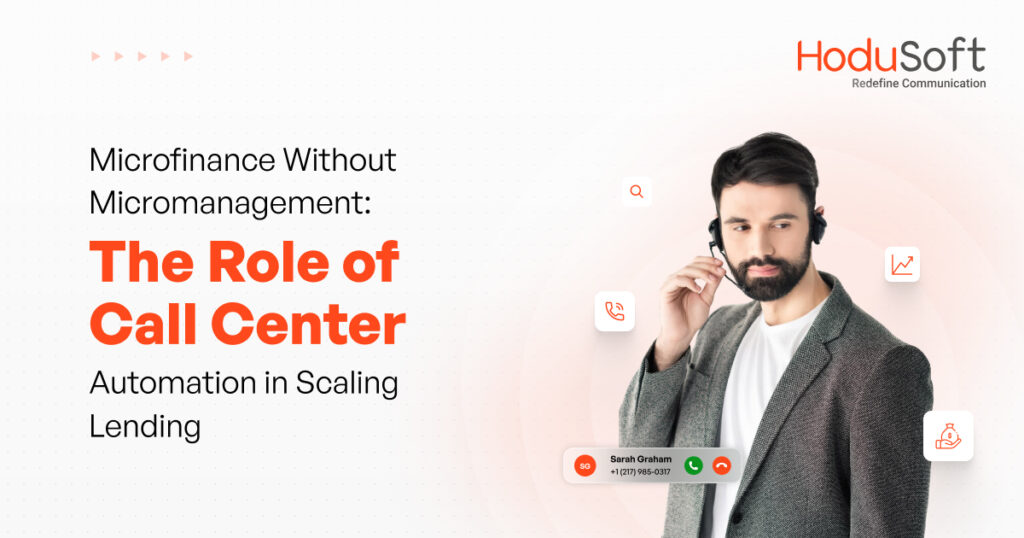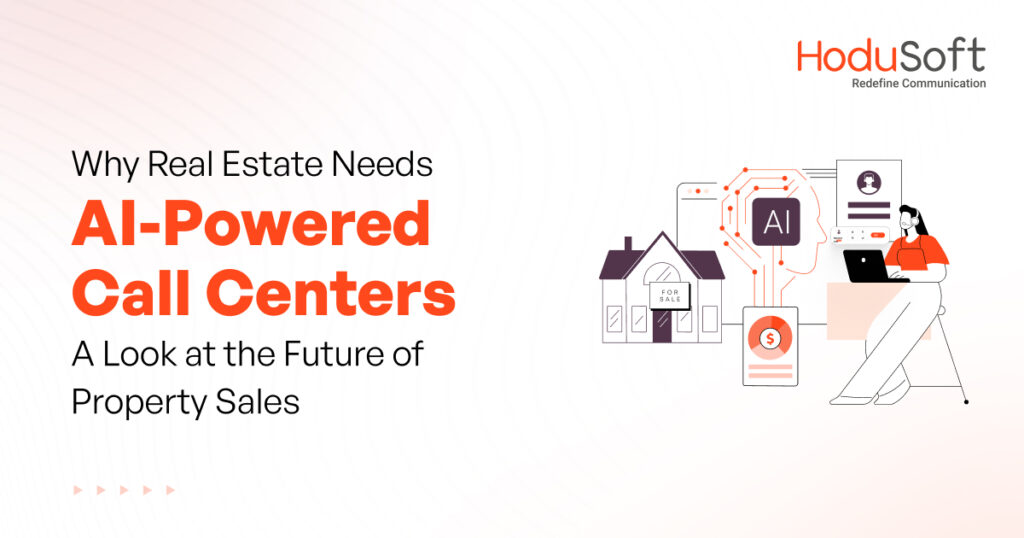How Multi-Factor Authentication Protects Customer Data in Call Center Software?
“Think of multi-factor authentication as an extra lock on your front door–it provides an additional layer of protection for your online accounts beyond just a password.”
This anonymous quote sums up what multi-factor authentication is in extremely simple words. Another way to define multi-factor authentication is the sum of something you know, something you have, and something you are.
The first factor is a phrase or a password. The second one is a code from email, SMS, app notification, push notification, USB token or QR code. The third one is a PIN or biometrics such as a face scan, iris scan, or fingerprint.
Multi-factor authentication as a concept was first introduced by internet behemoth AT&T in 1996. Even though the technology has been around for over 28 years, its demand increased by leaps and bounds after the COVID-19 pandemic.
Since early 2020, the number of data breaches across the globe has risen exponentially. Ever since, each year has registered an all-time high over the previous one.
That’s not all. The average cost of data breaches has grown exorbitantly! As you read on, you are going to find many stats on data breaches that will make you realize why data security should be the top priority for all businesses and call centers that deal with customers’ data.
In this blog post we will highlight why call centers must protect their customers’ data, the challenges and threats they face while protecting data, what multi-factor authentication (MFA) is and how it works, some stats related to MFA, and best practices to implement MFA.
So without further ado, let’s dive right into the blog post and find out how crucial multi-factor authentication is for call centers and why its implementation is the need of the hour.
Why Protecting Customer Data Is Important for Call Centers?
Not long back, just about a decade or so ago, investment in data security was regarded as a luxury by many businesses. But today, it’s a necessity. Every call center owner must do whatever it takes to protect customer data for the following reasons:
1. Increase in the Number of Data Breaches
Since the COVID-19 pandemic, the number of data breaches around the world has increased exponentially. Just to put things in perspective, let’s take a recent stat.
As per Statista, the number of data breaches in the U.S. has significantly increased, from a mere 447 in 2012 to more than 3,200 in 2023. In 2023, more than six billion malware attacks were reported around the world in 2023.
2. Maintain Customer Trust
Just imagine; out of two call centers that are similar in size, one is extremely particular about data security while the other is not. Which one do you think will be able to win customer trust? The former, obviously.
It pays a lot more attention to data security than the others. That means the other call center is more vulnerable to the loss of sensitive and personal customer information if there is a data breach. That would result in a loss of customers’ trust and loyalty.
3. Save Millions of Dollars in Ransom
How costly can a data breach be? In the present era, when hackers and cybercriminals are getting more sophisticated and ruthless than ever before, the cost of a successful data breach can cost a business arm and leg. As per a study by tech giant IBM, the average cost of data breaches reached an all-time high in 2023-24.
As per another stat the average cost of a data breach rose by 10 percent to USD 4.88 million, the highest increase since the pandemic! And experts opine that it’s only going to increase exponentially in the future. Call centers that fall prey not only have to pay hefty randoms but they also have to deal with exorbitant penalties, legal costs, and financial losses due to disruption of operations.
5. Operational Continuity
As discussed above, data breaches can halt operations. Be it the call center’s overall operations after a major breach or lack of access to data and information during the breach, the disruption can last for several hours to days. And that’s not all. The worst part is things would never be as before the data breach.
There won’t be ‘business as usual,’ so to speak, and operations won’t be as seamless as they used to be. A single instance of a data breach can undo years of efforts and resources invested into streamlining operations.
6. Competitive Advantage
In today’s time, the ability to secure sensitive and personal customer data from cyberattacks is a huge differentiator. Call centers that secure customers’ data from all potential threats have a massive edge over their competitors.
They get to charge a premium for their services to those people who take the privacy of their data extremely seriously and who are willing to pay an additional amount of money for superior security. Such call centers are not only able to attract discerning customers but retain them for a long time or for a lifetime.
7. Employee Morale
Robust data security is not just a boon for customers. It is also a blessing for employees. When a call center invests in data security, it fosters a secure environment where employees feel confident and motivated.
They know that they work in an organization that takes data protection seriously. A strong data protection record enhances a brand’s reputation, and every employee is sure to feel proud to be associated with such an organization.
8. Regulatory Compliance
Call centers must adhere to laws and regulations that prioritize the safety of personal and sensitive data. Some such laws are the General Data Protection Regulation (GDPR), the California Consumer Privacy Act (CCPA), and Digital Personal Data Protection. If any call center fails to comply with one or more regulations, then it will result in massive penalties.
How to Ensure Standardized Security for Contact Centers
Challenges and Threats Call Centers Face in Protecting Customer Data
Even though there is pressing urgency for call and contact centers to secure customer data as fast as possible, when it comes to doing that is a whole different ball game. The challenges and threats are plenty. Here are some of those:
1. Huge Volume of Sensitive Customer Data
Call centers and contact centers are extremely huge repositories of sensitive customer data. The types of sensitive and personal customer data include payment details, account credentials, name and age, and in some cases, occupation and their employers’ names. If such data ever gets compromised, it would not only endanger customers’ privacy but also put call centers in grave danger!
2. Inadequate Training
This is one of the major reasons behind data exposure and breaches in the call and contact center industry. When customer service agents lack the right training on data protection protocols, they are more vulnerable to cyber-attacks and data breaches. As per some data 88 percent of cybersecurity breaches are caused by human error.
3. Outdated Technology
Many call and contact centers still use legacy communication and data storage systems. Such types of outdated technology compromise their ability to ensure the security of personal and sensitive data.
4. Third-Party Risks
It is not uncommon for vendors and partners to have access to sensitive customer data. If they are not particular about following strict security measures, they can introduce vulnerabilities and increase the chances of data breaches.
5. Remote Work Challenges
This is especially true for virtual call centers that have customer care representatives spread across the globe. Increased remote work can make it extremely difficult to monitor access and secure endpoints. That complicates data security by leaps and bounds.
6. Phishing Attacks
If call centers don’t take the security of their customers’ data seriously, they would be extremely vulnerable to phishing attacks. As per a stat, 36 percent of all data breaches involved phishing.
What Is Multi-Factor Authentication and How Does It Work?
As the name suggests, multi-factor authentication is a security measure that requires users to enter more than two verification factors to access a computer system or a device connected to the internet or any sophisticated telecom line.
MFA is the offshoot of two-factor verification that was engineered by AT&T in 1996. The major difference MFA has over two-step verification is that unlike the latter, which involves two verification factors, it requires users to enter the right inputs in more than two factors.
By requiring multiple verification forms, MFA reduces (in some cases, entirely eliminates) the risk of unauthorized access even when a password is compromised.
How MFA Works?
To ensure whether or not the right authorized person is accessing a system, MFA has three checkpoints and a user has to give the correct answer in each step to go to the next. Those are:
1. Something the User Knows
This usually involves a password or PIN that only the user should know.
2. Something the User Has
This could be a physical device such as a smartphone, a hardware token, or a smart card. Users may receive a code via SMS, email, or an authenticator app.
3. Something the User Is
This refers to biometric verification, such as fingerprint scans, facial recognition, or voice recognition.
Stats Associated with Multi-Factor Authentication
To better understand the impact of multi-factor authentication (MFA) on contemporary businesses and customers, let’s take a look at some recent stats.
1. MFA will Replace Passwords
As per a stat, about 50 percent of IT and cybersecurity leaders predict that MFA will replace passwords.
2. Businesses Using MFA
As per a recently published stat, 57 percent of businesses around the world used MFA. The technology industry leads in MFA implementation as 87 percent of organizations in the sector use it.
3. Cybersecurity Breach and MFA Adoption
As per a recent study, nearly 25 percent of organizations that took part in the research stated that they started using MFA following a cybersecurity breach.
4. MFA Reduces Phishing Attacks
A study, conducted by Duo Security revealed that organizations that implement MFA register a 50 percent reduction in phishing attacks.
Best Practices for Implementing MFA
When it comes to implementing MFA, there are some extremely effective and best practices using which call centers can make the most of their data storage systems and protect themselves from data breaches. Here are some:
1. Assess All Data Risks and Vulnerabilities
First of all, assess all risks and vulnerabilities associated with customer data. Risk assessment is a prelude to finding safety solutions. As noted American aviation safety pioneer Jerome Lederer rightly said, “Risks must be identified, analyzed, evaluated and controlled or rationally accepted.”
2. Handpick the Right Tech Provider
Different tech providers integrate different types of multi-factor authentication into their systems. You need to handpick solutions providers with a robust track record, industry recognition, awards and badges of honor, and customer testimonials that back their claims as the providers of the best multi-factor authentication systems.
3. Select the Right Factors
After joining hands with the right solutions providers and buying their software, it’s time to use a combination of passwords, security tokens, mobile devices, as well as biometrics.
4. Train Users
Last but not least, after choosing the right factors, the next step is to train users, that is, your employees, to understand how the MFA system works and what’s the best way to use it. Provide clear instructions and address all the user concerns.
Wrapping Up,
As data breaches and cyberattacks have increased exponentially over the last few years, call and contact centers need to do whatever it takes to safeguard customers’ personal and sensitive data. For that, MFA has proven to be a lifesaver in recent times.
This blog has explored the critical role of customer data protection in call centers, highlighting the challenges and threats they face in today’s digital landscape.
If you are an owner of a call center or a senior professional in one, you must make sure that you invest in MFA and other security measures to create a safer environment for both your customers and your business.
At HoduSoft, our call and contact center software solutions are equipped with advanced MFA features. We encourage you to consider adopting MFA as part of a comprehensive strategy to combat data threats. Contact us today to book a free demo.



